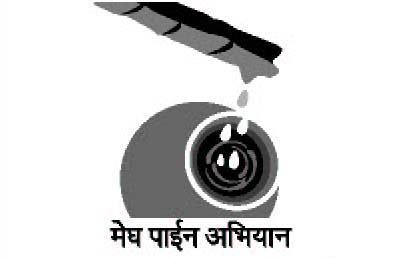Megh Pyne Abhiyan (MPA)
Towards self-reliance and access to safe drinking water and secure sanitation in north Bihar: A report by Megh Pyne Abhiyan
Posted on 27 Jan, 2013 11:48 AMBriefing papers on ‘Jal kothis’, ‘Matka filter’, 'Dug wells' and ‘Phayedemand shauchalaya’: Local innovative solutions in flood prone Bihar by Megh Pyne Abhiyan (2011)
Posted on 29 Dec, 2012 03:14 PMThe briefing papers include the following:

Dug wells- A potentially safe source of drinking water for the arsenic and iron contaminated region of Bihar - A paper by Megh Pyne Abhiyan (MPA)
Posted on 03 Aug, 2012 01:00 PMThis paper published by Megh Pyne Abhiyan argues that dug wells slowly started losing their significance following the invention and large scale marketing of hand pumps,.
Organising safe drinking water through community participation in flood-affected areas of Bihar - Case studies from the work of the Megh Pyne Abhiyan network
Posted on 22 Mar, 2010 02:08 AM This set of case studies (in hindi), details the work of Megh Pyne Abhiyan and their network partners - Gramyasheel and Samta, in organising safe drinking water in participation with the local village communities, in the flood affected West Champaran, Supaul and Khagaria districts of Bihar.
This set of case studies (in hindi), details the work of Megh Pyne Abhiyan and their network partners - Gramyasheel and Samta, in organising safe drinking water in participation with the local village communities, in the flood affected West Champaran, Supaul and Khagaria districts of Bihar.
Accessing safe drinking water during floods in North Bihar - Case study from the work of Megh Pyne Abhiyan
Posted on 19 Nov, 2009 03:20 PMThis case study published in Yojana documents Megh Pyne Abhiyan's work in organising access to safe drinking water for rural communities during the 2006 and 2007 floods in North Bihar. As a result of the Abhiyan's work, approximately 13000 and 36000 people accepted and accessed rainwater as a safe drinking water during the North Bihar floods of 2006 and 2007 respectively. Using rain water for drinking led to significant improvement in health indicators and flood-related deaths and sickness, as well as reduction in health expenditure.
Megh Pyne Abhiyan: An initiative to promote rainwater harvesting to provide safe drinking water during floods
Posted on 21 Aug, 2009 12:15 PMMegh Pyne Abhiyan - Baadh prabhavit sthalon mein varsha jal sangrahan
Read more about the effort in Hindi
Understanding the floods in North Bihar: Background and causes
Posted on 04 Sep, 2008 10:34 AMNorth Bihar has a long history of flooding.Through a series of posts here, we will attempt to explain the background of flooding in Bihar and what are the root causes.
Flood situation report in Supaul district compiled by Megh Pyne Abhiyan
Posted on 28 Aug, 2008 09:42 AMAbout the Report: The flood situation report has been a joint effort of Megh Pyne Abhiyan's (literally clouds' water campaign, involving people around the issue of water and livelihood, and a functional network of grassroots organizations) partners - Gramyasheel, Supaul; Kosi Seva Sadan, Saharsa; Samta, Khagaria, Ghoghardiha Prakhand Swarajya Vikas Sangh, Madhubani; SAVERA, West Champaran; Luisa Cortesi and Eklavya Prasad in assistance with Santosh Jha of Gram Bharti, Raghopur.Supaul. For compiling the situation report, two days of field visit was undertaken by the team, involving extensive interaction with affected villagers from India and Nepal, discussion with members of civil society groups, deliberations with government officials (Sub Divisional Magistrate and Dy Superintendent of Police, Tribeniganj; District Magistrate, Supal) and internal exchange of idea between the partners of Megh Pyne Abhiyan (MPA) and the supporting organizations. During the field visit, the group started to explore the option of establishing a district level coordination group comprising of eminent personalities and professionals, representatives of non governmental organizations and media, to coordinate and steer the rescue and relief work with individuals, government agencies, non government organizations, donor agencies, corporate bodies etc. Hence, on 25th August during a district level meeting of local organizations, activists and donor agency, a consensus was reached to set up a coordination group, named as the Flood Action Coordination Group (FACG), Supaul.
General overview of the River: On the 18th of August the eastern embankment of Kosi near Kusaha in Nepal's Sunsari district breached. The breach itself has caused colossal loss of life and property in the south east tarai region of Nepal and in six districts of north Bihar, affecting more than 2.5 million human lives. After the breach, the river has shifted its course nearly 100 kilometres (kms) eastward from its earlier course (which use to pass through the districts of Supaul, Saharsa, Madhubani, Darbhanga and Khagaria).
Access the entire report:
